One of the latest cyber crime campaigns doing the rounds in India is the Digital Arrest Scam. The scammers use fake arrest warrant documents and threats to intimidate people into revealing personal information or paying money. The objective of the scammer is to scare and instill fear in the mind of the victim and act in haste.
Signup to our newsletter to receive the latest cyber threats and research.
What is the Digital Arrest Scam?
Digital arrest Scam is a social engineering technique where the victim receives a message(SMS/Whatsapp), email or a video call from a person posing as a law enforcement agency official.
The victim or his close family members is accused to have been involved in a criminal activity such as drugs trafficking , money laundering or other unlawful activity.
Digital arrest scam tends to create fear and a sense of urgency in the victim’s mind, making them to believe that they are facing imminent legal action unless they comply with the demands of the scammer.
It is evident from our analysis of the documents, messages and call records that the scammers have obtained the name, age and Aadhaar number of individuals.
These details are then used in the fake CBI/RBI/Customs/TRAI documents and sent to the victims. This is followed up by constant messages and calls to the citizens threatening of a digital arrest unless a payment is made.
How does the scam work
The victim receives a either a message(SMS/Whatsapp), email or call from the scammer claiming to be from a law enforcement agency such as the police , RBI, CBI or TRAI.
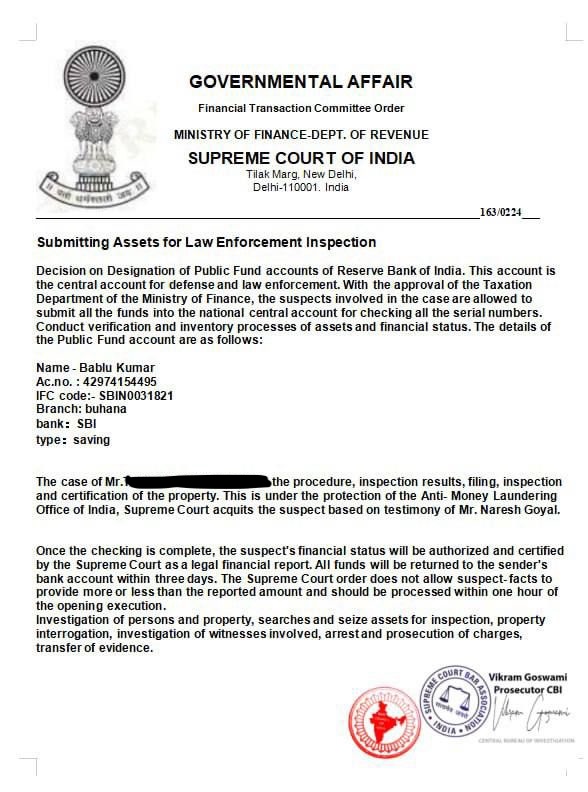
Figure 1: Fake government letter sent to the victim to deposit money into a bank account
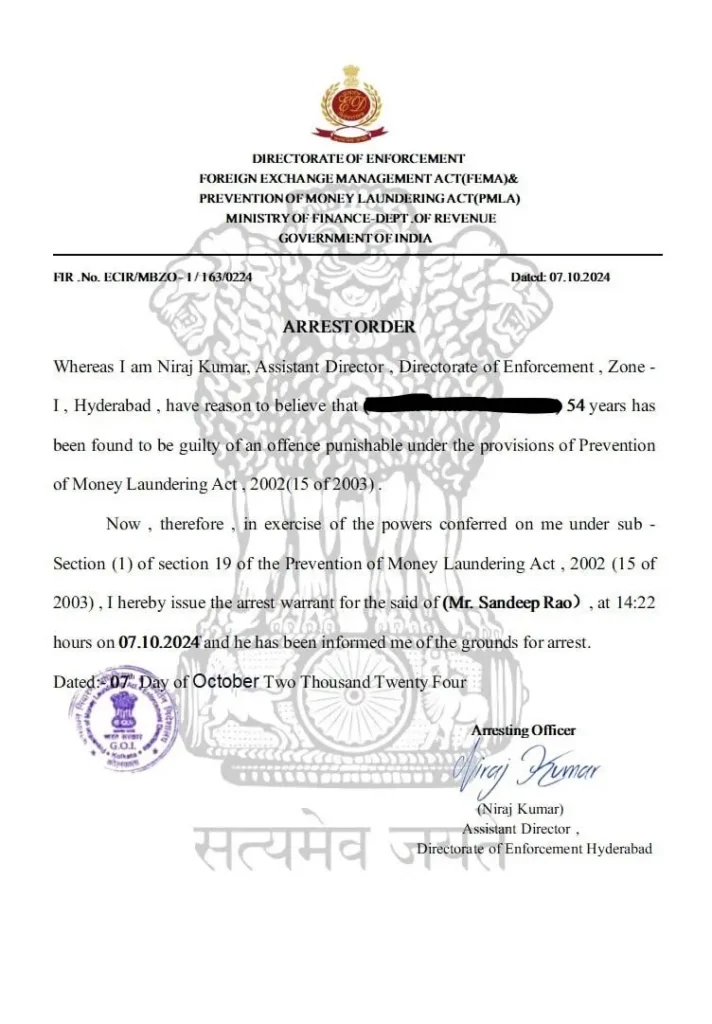
Figure 2: Fake arrest warrant letter with the victim’s name and age.
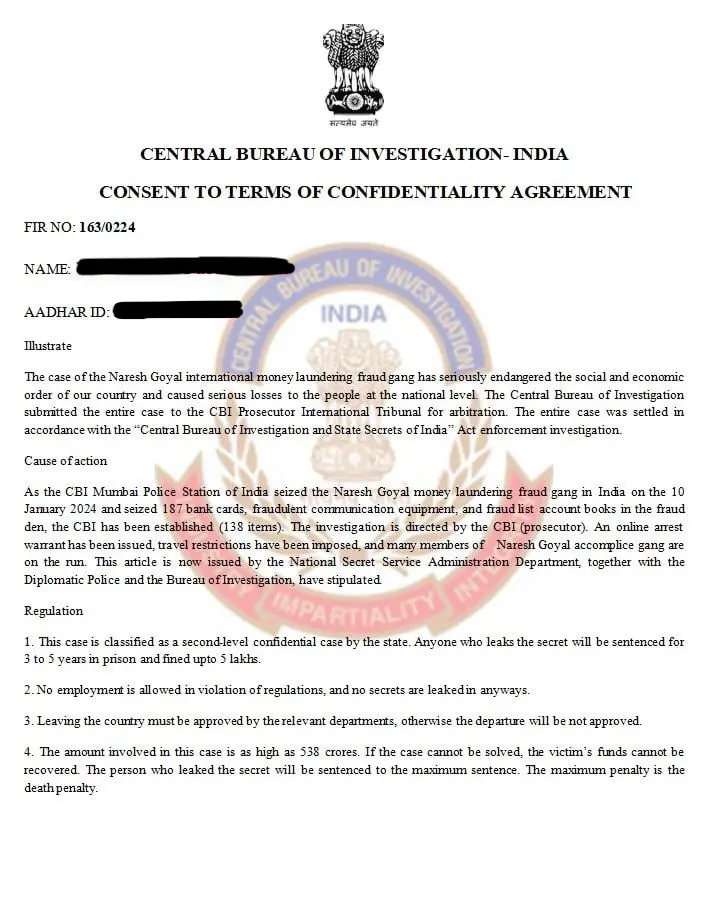
Figure 3: Fake CBI letter sent to the victim with the victim’s name and Aadhar number
The Victim is informed that either they or a family member is involved in some illegal activity. The manner of their speech creates panic and a sense of urgency in the victims mind.
They will either make a normal call, or ask the victim to join a video call.
They will then start framing the victim under random sections, threatening to arrest them, or even claim that they have already arrested a family member.
The victim is threatened that they may get framed in cases such as drug trafficking, possession of illegal items, money laundering etc.
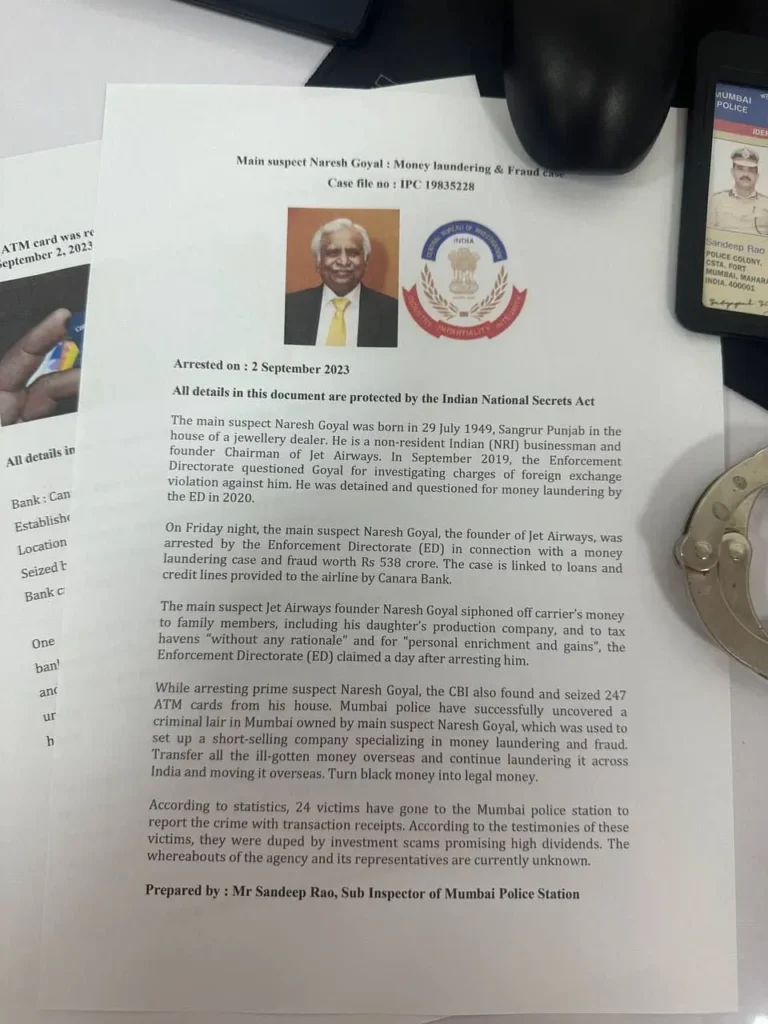
Figure 4: Fake letter photo sent to the victim with government ID and handcuffs
The main purpose of this is to extort money or steal your personally identifiable information. The scammers sums of money to solve the case and let go. Scammers typically request payments through bank wire transfers, UPI etc
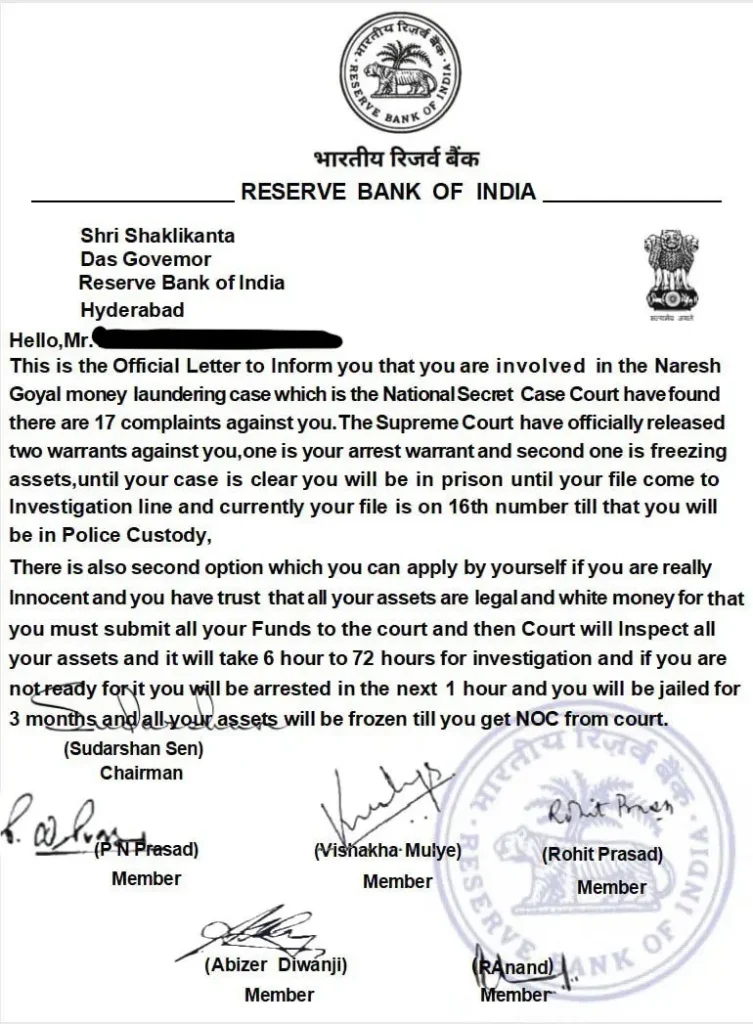
Figure 5: Fake Reserve Bank of India(RBI) letter sent to the victim threatening of an arrest because of money laundering
How to protect yourself from the scam
- Do not Panic!
- No law enforcement agencies, including the Central Bureau of Investigation (CBI), police, customs, Enforcement Directorate (ED), or judges, conduct arrests over video calls.
- Be cautious and verify any suspicious communications claiming to be from law enforcement agencies
- Do not answer calls/messages from unknown numbers
- If you receive a suspicious call, and you are asked to join a video call, inform them that you will physically visit the office to sort out the situation
- You can report such calls on the Cybercrime helpline 1930 or cybercrime.gov.in

